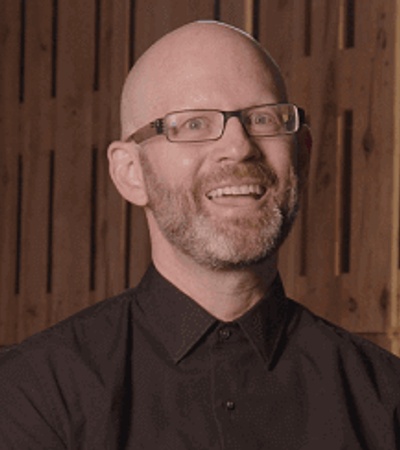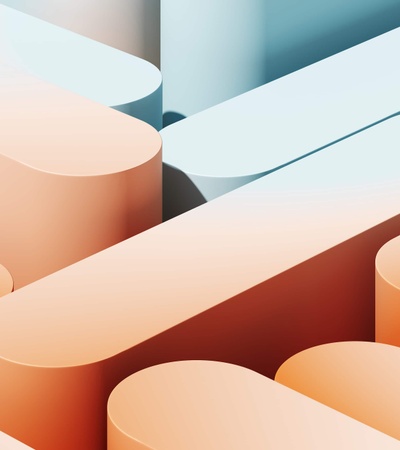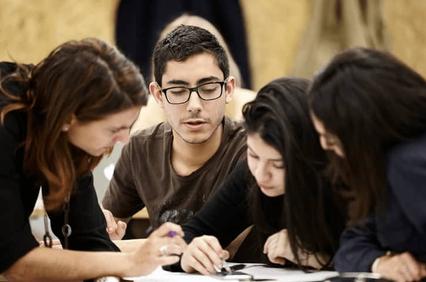Bachelor in Design
Bachelor in Design
- Home
- Studies
- Undergraduate Degrees
- Bachelor In Design
A UNIQUE BACHELOR IN DESIGN
A UNIQUE BACHELOR IN DESIGN
The study plan for the Bachelor in Design at IE University has been designed with the prestigious academic experience at its core, our academic faculty’s expert knowledge and research in each area, and the linkages between the University and the professional world.
The Bachelor in Design aims to teach young ambitious individuals to build the proper skill set to become professionals capable of facing real-world challenges.
Through our hands-on teaching methodology, students from the Bachelor in Design will find a perfect balance between what is studied throughout their degree and the projects that are applied based on real-world scenarios.
This will aid them to develop profiles that are able to adapt to new trends happening now in the 21st century.
WANT TO KNOW MORE?
Bachelor in design tracks
Bachelor in design tracks
The Bachelor in Design offers various elective tracks within the same program, enabling students to customize their educational journey while maintaining a strong design foundation. These tracks provide focused expertise, allowing students to deepen their knowledge in specific areas without having to enroll in separate degree programs.
BACHELOR IN DESIGN STUDY PLAN
BACHELOR IN DESIGN STUDY PLAN
Learn more about our BACHELOR IN DESIGN
Learn more about our BACHELOR IN DESIGN
FIRST YEAR
During your first year, you will have a broad introduction to the world of design and you will begin to develop the necessary skills to work and succeed as a designer. You’ll take a first look into the multidisciplinary aspects of the profession and you’ll benefit from our design studio methodology, defined by its practical approach and its combination of individual and collaborative work.
SECOND YEAR
In your second year of study you will learn about the creative methodologies currently being used in professional practices, and you’ll develop a critical approach to your designs. The assignments will become more complex as you build up your skills; you will be expected to integrate information, concepts, and techniques from related disciplines.
THIRD YEAR
During the first half of your third year, you will continue developing your designer skills in five areas: design culture, techniques, applied sciences, business and project-centered design. You will build a theoretical framework and learn about materials and their different uses. You will take several elective courses, which will allow you to personalize your career path an experience more types of design. During this year, you will also be able to study abroad.
FOURTH YEAR
The fourth year is all about consolidating knowledge. You will learn about the latest developments in creative technology and you will use them as tools for your design practice. You will learn about the latest trends in digital fabrication and study creative coding and programming from a designer’s perspective. During this year we will also address the main issues regarding the dissemination of your work, reaching out to important stakeholders, working on your portfolio, and the storytelling of your projects.
WATCH THIS SUSTAINABLE ARCHITECTURE & DESIGN MASTERCLASS
WATCH THIS SUSTAINABLE ARCHITECTURE & DESIGN MASTERCLASS
Join David Goodman's masterclass on green building, learning stylish, eco-friendly design from top architects. Create loved, sustainable spaces. Design with the planet in mind!

Learning a new language can open up a world of new opportunities
Learning a new language can open up a world of new opportunities
IE University considers multiple language acquisition to be a key element of its educational model, leading to success in both work and study.
The Language Center at IEU is proud to offer students the possibility to study a wide range of languages, including French, German, Portuguese, Chinese, Arabic, Spanish, and English. With such a large variety of options, our students are able to personalize their academic path to meet their future career plans and objectives.

The Language Center at IEU
The Language Center at IEU
The Language Center helps students develop their multilingual communicative skills to help them flourish in the international labor market.
COMPETENCES
COMPETENCES
Basic competences
GENERAL COMPETENCES
- Develop a basic ability to spell out relevant outcomes through practical application in different fields of design, incorporating information from other disciplines.
- Understand design’s impact and implications for contemporary society and be capable of offering solutions and actively participating in creation and conceptualization processes.
- Suggest and implement proposals involving creative activities to provide added value to the everyday activities of companies and society.
- Understand and use graphic language and tools to present, simulate and resolve design problems.
- Produce relevant outcomes as a result of hands-on involvement in different fields of design, including products, graphics or interfaces, and incorporating information from other disciplines, in order to develop new offerings and solutions and convey and pass on the knowledge acquired.
- Apply knowledge of modeling, visualization, materials technology and production techniques when conducting design projects, paying attention to their viability and social, technological and environmental constraints.
PROGRAM-SPECIFIC COMPETENCES
- Devise, plan and conduct design projects in line with requirements and the technical, functional, aesthetic and communication constraints of a brief.
- Develop the ability to create designs that simultaneously meet aesthetic, theoretical and technical requirements.
- Understand and interpret historical, theoretical and critical texts in the fields of design, art and architecture in a relevant and logical manner.
- Learn relevant methods to apply the creative process to professional situations and innovative problem-solving.
- Interpret and critically evaluate final products and design projects created by yourself and others.
- Learn relevant research methods used in project design and theory, analysis and criticism in the fields of design and art.
- Graphically structure and prioritize verbal information.
- Present and explain the outcomes and work processes used to obtain objects you have designed, both orally and in writing.
- Learn and master the graphic elements used in design and visual communication and the tools used to create and produce them, using a variety of physical, audiovisual or digital means.
- Implement strategies and methodologies to obtain innovative solutions to creative briefs. Acquire basic knowledge of information presentation and visualization techniques.
- Use basic digital expression techniques (programming, interaction and multimedia resources) in order to conduct design projects.
- Use digital tools to bring communicative and expressive actions in line with their intended use through design solutions.
- Understand industrial and artisanal manufacturing processes as well as their main features and limitations.
- Recognize the ways in which digital manufacturing can contribute to design, as well as its main features and limitations.
- Master the aesthetic fundamentals of design, including morphology, structure, color, space, volume, tectonics, typography and composition.
- Master the fundamentals of typography, mockup and presentation techniques.
- Apply basic social science knowledge to design projects, including elements from psychology, analytical fields, sociology, programming, ethnography, social science research methods, etc.
- Understand how to apply social science statistics and analytical tools to design projects.
- Propose research and innovation strategies with the aim of meeting the functionality, needs and materials expectations of design.
- Recognize and make use of the advantages offered by programming when it is used as a design tool.
- Add technology and digital manufacturing to the list of tools available to you to solve problems related to proposed design statements.
- Understand the materials and materialities used as a medium for both physical and digital visual design.
- Understand the media and materialities that make product design possible, both for physical and digital products.
- Understand the materials and materialities that define spatial design.
- Understand the structures used to define a strategic design project.
TRANSVERSAL COMPETENCES
- Identify the main cultural identity traits that characterize today’s world by understanding the main contemporary ideological trends.
- Behave professionally in accordance with the core principles and ethics of the profession.
- Manage unforeseen situations by being able to adapt to organizational changes.
- Use knowledge of the discipline to analyze and evaluate current situations.
- Form a part of interdisciplinary and multicultural teams to achieve shared goals in a diverse environment.
- Work actively in an international context.
APPLICABLE REGULATIONS OF THE PROGRAM
APPLICABLE REGULATIONS OF THE PROGRAM






